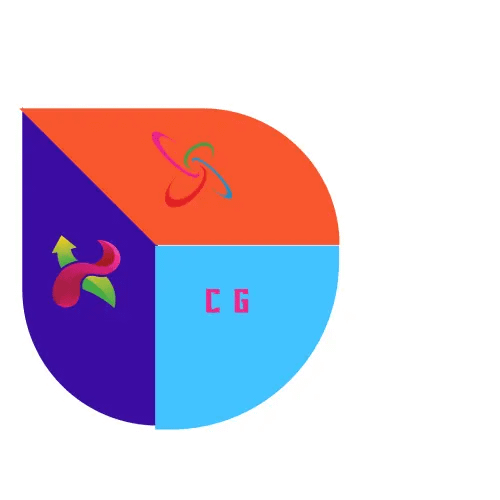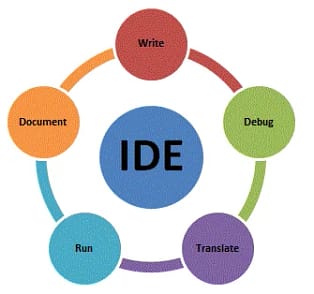Gaming has become an essential part of our lives, captivating people of all ages and backgrounds due to its fun. From the iconic Super Mario to the immersive worlds of Call of Duty, games have the power to transport us to different realities and provide endless entertainment.
Today we gonna discuss about the how can you make carrier in game development.
But have you ever wondered about the intricate process behind developing these games? Or perhaps you’ve considered pursuing a carrier in game development yourself?
In this article, we will delve into the scope of game development, exploring its various aspects and the potential it holds as a lucrative career path. But if you wanna know about scope of game development in detail check this blog.
The World of Game Development
Game development is a complex and dynamic industry that requires a diverse skill set and a dedicated team of professionals.
It encompasses the creation of video games from concept to completion, involving the development of engaging storylines, captivating characters, stunning visuals, and seamless gameplay mechanics.
The process of game development typically spans several stages, ranging from drafting the initial prototype to polishing the final product for public distribution.
The Stages of Game Development
Let’s take a closer look at the key stages involved in the development of a game:
1. Drafting the Prototype
The first stage of game development involves creating a prototype that outlines the game’s storyline, mechanics, and user-friendly gameplay.
This stage allows developers to identify any major errors in the game’s mechanics or art and make necessary adjustments.
While the prototype may not be a fully finished product, it serves as a foundation for the subsequent stages of development.
2. Creating the First Playable Version
After refining the prototype, developers move on to creating the first playable version of the game. This stage involves implementing the changes based on the feedback received from testing the prototype.
Developers play the game to ensure that the changes function properly and enhance the overall gameplay experience.

3. Developing the Vertical Slice
When pitching the game to investors or studios, developers showcase a vertical slice of the game. This sample provides a preview of the game’s features and gameplay, even if the game is not yet complete.
It serves as a demonstration of the game’s potential and helps secure funding or partnerships for further development.
4. Removing Unnecessary Content
At this stage, developers refine the game by removing any content that does not align with the predefined storyline or is deemed unnecessary. This process ensures that the game remains focused and cohesive, enhancing the overall player experience.
5. Working on Changes and Adjustments
Developers dedicate this stage to fine-tuning the game and making any necessary changes or adjustments. They play the game from beginning to end, adding artwork, refining controls, and ensuring that all elements of the game function seamlessly.
6. Completion and Quality Check
In the final stage of game development, developers make final changes to the game and conduct a comprehensive quality check. They meticulously test every aspect of the game, ensuring there are no errors or glitches. Once the game passes the quality check, it is ready for distribution to the public.
Carrier in Game Development
Building a game from scratch is a monumental task that requires a team of individuals with specialized roles. Let’s explore some of the key roles involved in game development:

1. Game Designer
Game designers are responsible for handling the creative components of a game. They design the storylines, characters, game rules, goals, and challenges, as well as the user interface.
Game designers work closely with writers to develop the game’s narrative and dialogue. They play a crucial role in pitching the game idea to publishers and management. Its a good carrier in Game development.
2. Game Artist
Game artists focus on the visual aspects of the game, including graphics, animations, and special effects. They transform 2D sketches into lifelike 3D graphics, create immersive virtual worlds, and apply color palettes and visual effects.
Game artists collaborate closely with art directors, 3D renderers, and lead designers to ensure that the game’s visuals align with the overall vision.
3. Sound Engineer/Designer
Sound engineers/designers are responsible for the audio aspects of the game. They create background ambiance, mix musical soundtracks, and synchronize audio with the game’s visuals and actions. I don’t guess you will choose this carrier in game development.
Sound engineers play a crucial role in enhancing the immersive experience for players, evoking emotions, and creating tension or excitement.
4. Game Programmer
Game programmers write code that brings the game to life and make it alive. They develop gaming software, incorporate artwork, and configure player interactions.
Game programmers work with programming languages such as C#, C++, or Python, building the codebase of the game. They also handle debugging and beta testing to ensure a smooth gaming experience.
You can learn any language from our courses page and Udemy. Its good carrier in game development but programming is not very easy.

5. Level Designer
Level designers focus on creating engaging and challenging game levels. They design the layout, obstacles, and objectives for each level to keep players engaged and entertained.
Level designers work closely with game designers to ensure that the gameplay aligns with the initial game design and offers a rewarding experience for players.
6. Game Tester
Game testers play a crucial role in ensuring the quality of the game. They identify errors, bugs, and gameplay issues that need to be addressed before the game is released to the public.
Game testers provide valuable feedback to the development team, helping them refine and improve the game’s overall experience.
7. Game Producer
Game producers oversee the entire game development process. They manage funding, negotiate contracts, maintain schedules and budgets, and ensure that the team meets milestones.
Game producers play a vital role in keeping the development process on track and ensuring the successful release of the game.
Skills Required in Game Development
To excel in the field of game development, individuals need to possess a range of technical and creative skills. Here are some essential skills required for a successful career in game development:
1. Proficiency in Game Engines
Game developers should have a strong command of at least one game engine. Unity, the most popular development platform, allows for the creation of cross-platform and interactive games. Other game engines like Unreal Engine and GameMaker are also widely used in the industry.
2. Programming Languages
A solid understanding of programming languages is essential if you wanna be a game developer. C# and C++ are commonly used for game development, while Python and Lua may also be required for specific tasks. Game developers must be proficient in writing clean and efficient code to bring their game ideas to life.
3. 2D/3D Modelling
Game developers should be skilled in creating and manipulating 2D and 3D assets using tools like Unity, Maya, Blender, and RealFlow. They should have a strong sense of design aesthetics and the ability to create visually appealing game elements.
4. Programming Specialization
Game developers often specialize in specific areas such as game mechanics, multiplayer support, or artificial intelligence.
Specializing in a particular programming domain allows developers to deepen their expertise and contribute unique skills to the game development process.
5. Prototyping and Testing
Creating prototypes and conducting thorough testing is crucial in game development. Game developers should be proficient in producing low-fidelity and high-fidelity prototypes to test and refine gameplay features.
They should also possess strong analytical and problem-solving skills to identify and fix any issues that arise during the testing phase.
Courses and Education in Game Development
To pursue a career in game development, individuals can benefit from various educational programs and courses. Here are some popular options:
1. Diploma Courses
Diploma courses in game development offer a comprehensive curriculum that covers both technical and creative aspects of game development.
These courses provide hands-on training and often include projects that allow students to apply their skills in real-world scenarios.
2. Degree Courses
Degree programs in game development, such as Bachelor’s or Master’s degrees in Game Design or Computer Science, offer a more in-depth study of the field.
These programs provide a solid foundation in programming, game design principles, and advanced game development techniques.
3. Certificate Courses
Certificate courses offer focused training in specific areas of game development, such as game design, programming, or 3D modeling.
These courses are designed to enhance specific skills and can be a valuable addition to a developer’s portfolio.
4. Specialization Courses
Specialization courses allow individuals to delve deeper into specific aspects of game development, such as game physics, artificial intelligence, or virtual reality. These courses provide targeted knowledge and expertise in niche areas of the industry.
The Future of Game Development
The gaming industry continues to grow at a rapid pace, offering numerous career opportunities. According to the American Gaming Association, the game industry employs around 1.7 million people, with job opportunities increasing by an average of 62,000 each year.
With the rise of gamification in various industries, such as e-commerce and food delivery, the demand for skilled game developers is expected to soar. he future of game development is bright but first you have to choose a carrier in game development that fits your personality.
Frequently Asked Questions
What are the advantages of being in the field of Game Development?
- Game development offers continuous skill development opportunities in a highly competitive industry.
- Game developers enjoy decent salaries and have the chance to work on exciting and rewarding projects.
What are the disadvantages of being a Game Developer?
- The gaming industry is still in its growth phase, making job stability uncertain.
- Long and unpredictable working hours can be exhausting for game developers.
Which institutes in India offer specialization in Game Development?
- National Institute of Design
- IIT Delhi
- IIT Bombay
What is the “Gold Master Stage” in Game Development?
The “Gold Master Stage” is the final phase of game development, where the game is completed and ready for public distribution.
Conclusion
Game development offers a wide scope of opportunities for individuals with a passion for gaming and a desire to create immersive experiences. I hope this helped choose best carrier in game development.
From designing captivating storylines to developing stunning visuals and seamless gameplay mechanics, game development requires a diverse range of skills and expertise.
By honing their technical and creative abilities, aspiring game developers can embark on a rewarding career in this dynamic industry. So, if you’re ready to unleash your creativity and bring virtual worlds to life, game development might just be the perfect carrier in game development for you.
Happy gaming!



